-
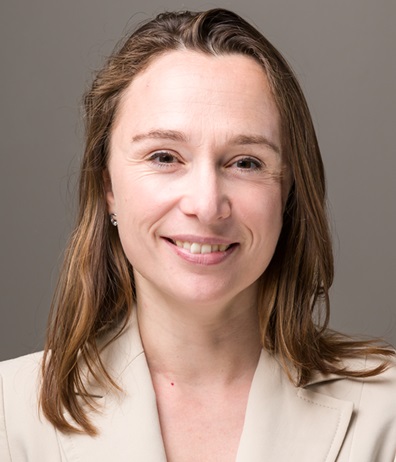
- Sonia Dunlop
CEO, Global Solar Council - Sonia Dunlop joined Global Solar Council in 2023. She has previously held prominent positions at SolarPower Europe and Solar Energy UK, where she led successful campaigns and initiatives, including the Solar Independence Campaign, the build out of the RE-Source Platform, an alliance of multinational corporations and renewable suppliers to encourage corporate sourcing of renewable power and the Digitalisation & Solar initiative. In these roles, she also contributed significantly to organizational and membership growth. She also spent five years in the European Parliament in Brussels working on renewables and energy infrastructure policy.
Over the last five years, she has been part of the management team of climate change politics think tank Third Generation Environmentalism (E3G), where she led on public banks, Multilateral Development Banks (MDBs) and international financial architecture reform. Dunlop was also seconded to the COP26 Glasgow organizing team, helping secure additional climate finance for renewables, adaptation and more from the World Bank and the group of 10 MDBs.
- Sonia Dunlop
-
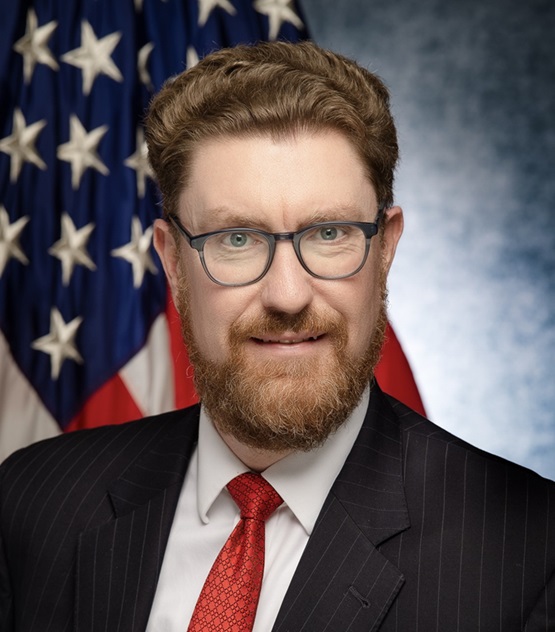
- Kenneth Vincent
Director of the Office of Asian Affairs, U.S. Department of Energy (DOE) - Kenneth Vincent is the Director of the Office of Asian Affairs at the U.S. Department of Energy (DOE). In this role, he manages the Department’s bilateral and multilateral relations with the Indo-Pacific region. This includes advising the Secretary and other senior officials on energy issues in Asia, supporting the U.S. government’s foreign policy-making process, and representing the United States in international fora.
Previously, he served the Chief of Staff of DOE’s Office of Fossil Energy, which is responsible for fossil energy research and development and export authorizations for liquefied natural gas. Prior to that, he worked as an Economist for the Office of Petroleum Reserves, where he tracked global markets and led long-term planning for the Strategic Petroleum Reserve program. He began his career at DOE as oil market analyst with the U.S. Energy Information Administration.
He holds a B.A. in Foreign Affairs from the University of Virginia, a Master of International Affairs from the Bush School of Government and Public Service at Texas A&M University, and a Ph.D. in International Relations from George Washington University.
He is also an adjunct professor at Texas A&M University’s DC campus, where he teaches a graduate seminar on energy, climate, and national security.
- Kenneth Vincent
-
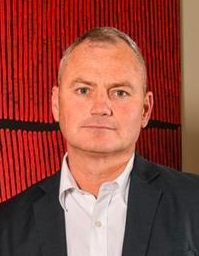
- Simon Holmes à Court
Director, Smart Energy Council - Simon Holmes à Court is founder of Climate 200, a crowdfunding initiative supporting community candidates committed to climate, integrity and gender equity. At Australia’s 2022 Federal election, Climate 200’s 11,200 donors leveled the playing field, helping to elect seven new independents to the Australian Parliament.
Simon began his career as a software engineer in Silicon Valley during the first dotcom wave, then spent more than a decade in precision farm water management. Simon was a driving force behind the Australia’s first community-owned wind farm, Hepburn Wind, winner of the 2012 World Wind Energy Award. Simon was appointed as the founding chair of the Melbourne Energy Institute’s Advisory Board.
He is an energy analyst, cleantech investor, climate philanthropist, director of the Smart Energy Council, The Superpower Institute and the Australian Environmental Grantmakers Network. He writes regularly about the transformation of Australia’s energy sector.
- Simon Holmes à Court
-
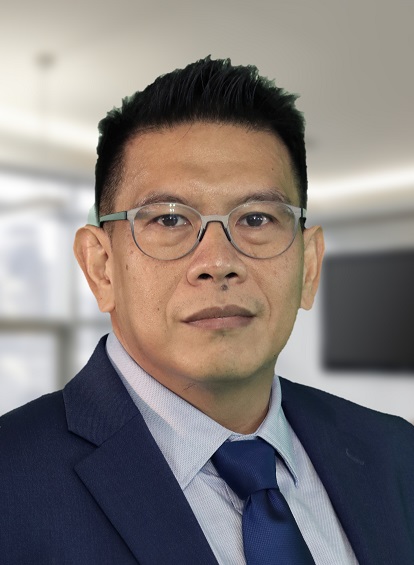
- Fabby Tumiwa
Executive Director, Institute for Essential Services Reform (IESR) - Fabby Tumiwa is an energy transition strategist and the Executive Director of Institute for Essential Services Reform (IESR). IESR is an Indonesia think tank in energy policy and environment that advocates for the low carbon energy transition in Indonesia. Fabby studied electrical engineering at Satya Wacana Christian University.
Fabby has experienced more than 20 years in energy policy and regulation and is a renewable energy practitioner. He advises Indonesian government agencies, businesses, and NGOs, multilateral development organizations on electricity, renewable energy and energy efficiency, energy finance, and climate change policies. From 2006 to 2018, he was a member of the international climate change negotiation team of Indonesia, and the board member of Extractive Industries Transparency Initiative (EITI) from 2011 to 2015.
Fabby Tumiwa is chairman of the Indonesia Solar Energy Association since 2021. He is a solar developer, a member of the Technical Advisory Group (TAG) of Energy Sector Management Assistance Program (ESMAP) of World Bank and a member of Energy Transition Accelerator High – Level Consultative Group, an initiative by US State Department, The Rockefeller Foundation, and Bezos Foundation.
Fabby is a 2007 LEAD Fellow and 2009 Eisenhower Fellow.
- Fabby Tumiwa
-
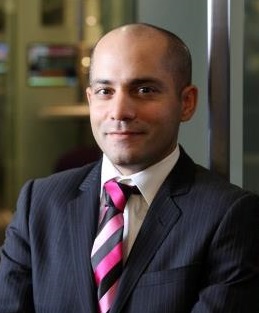
- Ali Izadi Najafabadi
Head of Asia Pacific, BloombergNEF - Based in Seoul, Ali Izadi manages BloombergNEF's activities across Asia Pacific, focusing on the transition of the region's economies to a cleaner more competitive future. Prior to his current role, Ali managed BloombergNEF’s Intelligent Mobility team as well as Japan and Korea Research team. Prior to joining BloombergNEF in 2010, Ali had worked at Japan’s National Institute of Advanced Industrial Science and Technology, as well as fuel cell manufacturer, Ballard Power Systems.
Ali has an undergraduate degree in Engineering Physics and a Masters in Electrical Engineering from the University of British Columbia, and a Doctorate in Materials Science from Meijo University.
- Ali Izadi Najafabadi
-
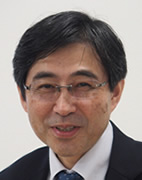
- Takeaki Masukawa
Secretary General, Japan Photovoltaic Energy Association (JPEA) - Takeaki Masukawa joined Showa Shell Sekiyu in 1985 and after two years of training in oil refinery, he spent 11 years in the oil and gas exploration business, which involved acquiring mining rights and oil field acquisitions. During this time, he worked in an operating company of Shell in the Netherlands for four years. From 2002, he was appointed as manager of distributed power generation business and power retail sales, gaining experience in the electric power business industry. In 2007, he joined the corporate planning division and assisted in establishing a company that provides charging services for electric vehicles. In 2013, he was seconded to Solar Frontier and contributed to the development of the Japanese solar industry's vision. He assumed the role of Secretary General of JPEA for two years from June 2017 and has resumed the same position since January 2023.
- Takeaki Masukawa
-
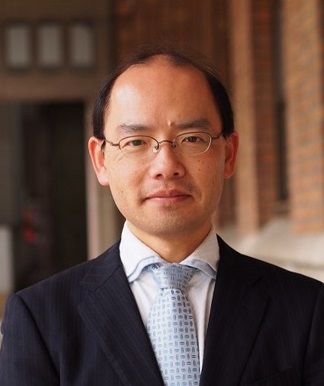
- Toru Morotomi
Professor, Graduate School of Economics, Faculty of Economics, Kyoto University - Toru Morotomi graduated from Doshisha University with a B.A. in Economics in 1993, and completed the doctoral program at the Graduate School of Economics, Kyoto University in 1998. He has been associate professor at the Faculty of Economics in Yokohama National University, and at the Graduate School of Economics, the School of Government, and at the Graduate School of Economics in Kyoto University before assuming his current position in March 2010.
His major publications include "Theory and Practice of Environmental Taxes" (Yuhikaku, 2000), "Environment: Frontier of Thinking" (Iwanami Shoten, 2003) among others on tax and economy. He is co-author of "Road to Low Carbon Economy" (Iwanami Shinsho, 2010), "Decarbonizing Society and Policy Mix" (Nippon Hyoron Sha, 2010), "Japanese Electricity Market Liberalization and Renewable Energy" (Nippon Hyoron Sha, editor and author, 2015), "Renewable Energy and Regional Development" (Nippon Hyoron Sha, editor and author, 2015), "An Introductory Guide to to Renewable Energy and the Electric Power System” (Nippon Hyoron Sha, editor and author, 2019), among others.
He has served on numerous government and municipal committees, as ad-hoc member of the Ministry of Economy, Trade and Industry's "Advisory Committee for Natural Resources and Energy," member of the Ministry of the Environment's joint subcommittee of the Central Environment Council's “Experts Committee on Environmental Taxation," member of the Tokyo Metropolitan Government's "Environment Council," member of the Ministry of the Environment's "Experts Committee on Policy Design of Domestic Emissions Trading System," member of the Asahi Shimbun's "Book Review Committee," an ad-hoc member of the Ministry of the Environment's "Central Environment Council," and an affiliate member of the 25th Science Council of Japan.
- Toru Morotomi
-
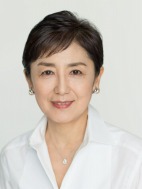
- Hiroko Kuniya
Journalist - From 1989 to 1993, Hiroko Kuniya was assigned as an anchor of “World News” on NHK BS. She hosted “Close-up Gendai”, a daily current affairs program on NHK-TV from 1993 to 2016. She is a Trustee of Tokyo University of the Arts, a Specially Appointed Professor of Keio University Graduate School, FAO National Goodwill Ambassador for Japan and worked as a journalist covering topics related to the Sustainable Development Goals (SDGs).
Awarded Broadcast Woman Prize in 1998, Kan KIKUCHI Award in 2002, Japan National Press Club Prize in 2011 and Galaxy Special Prize in 2016. She graduated from Brown University, US.
- Hiroko Kuniya
-
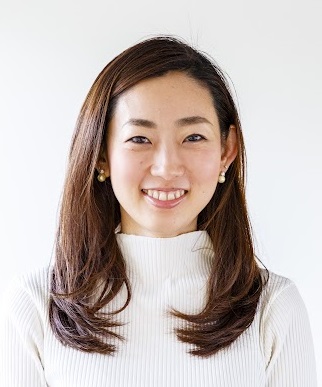
- Kumiko Isono
Director, Shizen Energy - After graduating from university, Kumiko Isono worked for a management consulting firm, where she was involved in projects such as mid-term business planning and marketing strategy development for multiple industries. After joining Shizen Energy in 2014, she led the O&M business and was appointed as Representative Director of JUWI Shizen Energy Operation in April 2015. She later served as head of the Corporate Services Department for the Shizen Energy Group. Kumiko became Director of Shizen Energy in September 2020.
- Kumiko Isono
-

- Kenji Inagaki
Executive Director, General Incorporated Association Local Good - Kenji Inagaki assumed his current position in 2020 after working for the Ministry of Education, Culture, Sports, Science and Technology and the Tokyo Metropolitan Government. His previous work includes developing strategies to encourage the use of renewable energy by local governments. Currently, he fully supports the promotion of local PPS projects. He is a member of government committees related to decarbonization including those within the Ministry of Economy, Trade and Industry (METI), the Ministry of Environment, the Cabinet Office and more. He is also the author of the books 'Local Electric Power Supply Companies' and 'Zero Carbon City'.
- Kenji Inagaki
-
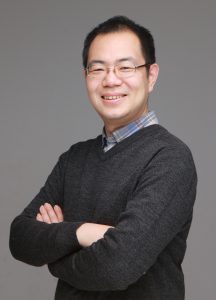
- Masayuki Mae
Associate Professor, Department of Architecture, Graduate School of Engineering, The University of Tokyo - Masayuki Mae specializes in architectural environmental engineering. After working as a researcher at the Building Research Institute and as a visiting assistant professor at the Architectural Environment and Energy Planning Laboratory at the University of Tokyo, he assumed his current position in 2008. For over 25 years starting during his student days, he has been researching energy-saving in housing. He focuses on developing fundamental technologies and design strategies to facilitate the construction and spread of solar-powered eco-houses, enabling people to live a pleasant, worry-free, and healthy lifestyle. Member of the Architectural Institute of Japan, the Society of Heating, Air-Conditioning and Sanitary Engineers in Japan, and Japan Solar Energy Society. He obtained a doctorate degree in Engineering from the Graduate School of Engineering at the University of Tokyo.
- Masayuki Mae
-
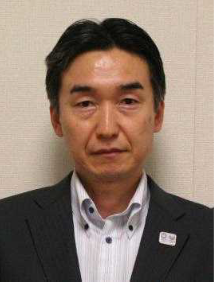
- Koji Miyazawa
Deputy Director General, Bureau of Environment, Tokyo Metropolitan Government - Koji Miyazawa joined the Tokyo Metropolitan Government in 1992. He has 16 years of experience in environmental management, having previously worked for the Bureau of General Affairs and the Office of the Governor for Policy Planning and others. In 2009, he was responsible for establishing and operating the nation's first Cap-and-Trade Program, which mandates CO2 emission reductions from offices and other large business facilities. In 2011, as Director of the Environmental Policy Division, he formulated the Emergency Program for Electricity after the Great East Japan Earthquake. In 2022, as Deputy Director General in charge, he led the implementation of the mandatory installation of photovoltaic power generation for newly constructed homes and residential buildings in Tokyo. He assumed current position in April 2023.
- Koji Miyazawa
-
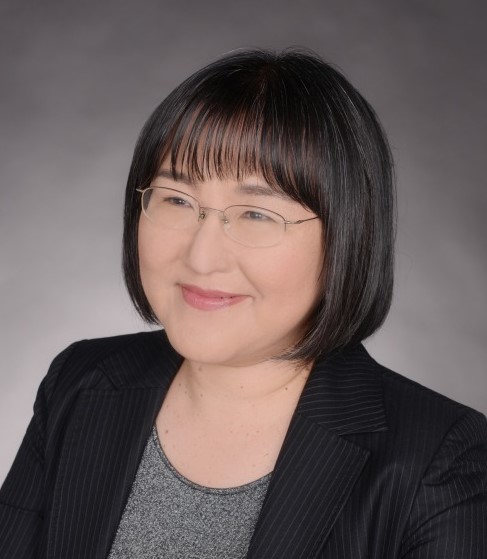
- Yukari Takamura
Professor, Institute for Future Initiatives, The University of Tokyo - After receiving Master of Laws (Public International Law) from Hitotsubashi University, Tokyo, Yukari Takamura was appointed Associate Professor at Shizuoka University. Before joining the University of Tokyo in 2018, she worked as Professor at Ryukoku University, Kyoto, and Professor at Nagoya University, Japan. She also studied at Graduate School of University of Paris II (Panthéon-Assas), France and was Visiting Researcher at University of London, U.K.
She is member of the Editorial Board of Journal Sustainability Science and of the Editorial Advisory Board of Journal Climate Policy. She is member of Board of Directors of the Japanese Society for Environmental Economics and Policy Studies as well as member of the Board of Executive Directors of the Japanese Society for Environmental Law and Policy Studies.
She serves as member of governmental advisory bodies, among others, Central Environmental Council as President, and Procurement Price Calculation Committee for Feed-in Tariff Scheme for Renewable Energy as Chair. She is also member of the Advisory Group on Climate Change and Sustainable Development of the Asian Development Bank (ADB). She is member of Science Council of Japan and serves as Vice President since October 2020, and received Environmental Conservation Merit’s Minister of the Environment Award in 2018.
- Yukari Takamura
-
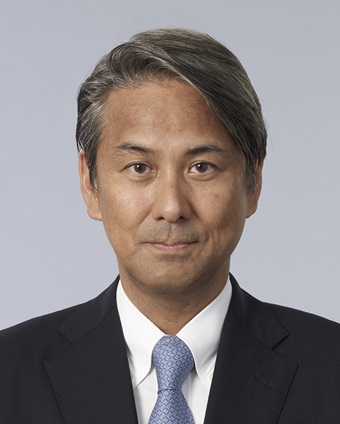
- Hiroo Inoue
Director-General, Energy Efficiency and Renewable Energy Department, Agency for Natural Resources and Energy, Ministry of Economy, Trade and Industry - As Director-General for Energy Efficiency and Renewable Energy Department since July 2022, Hiroo Inoue oversees the agency's mission on the policymaking for renewable energy, hydrogen strategy, fuel-cell promotion, battery innovation, micro-grid management and energy efficiency. He has extensive experience working in various departments related to environmental issues since joining the Ministry of Economy, Trade and Industry in 1994. From 2012 to 2015, he was appointed Director for Nuclear Energy in the Cabinet Office. From 2015 to 2017, he served as Director of Industrial Revitalization Division in METI. After that until 2020, he was Chief for both the Japan Machinery Center for Trade and Investment Brussels Office and JETRO Brussels. After returning to Japan, he was appointed Director for Policy Planning and Coordination Division, Minister's Secretariat in METI and was engaged in this role until 2022.
- Hiroo Inoue
-
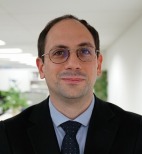
- Matthew David Wittenstein
Chief of Section, Energy Connectivity, UN Economic and Social Commission for Asia and the Pacific (UNESCAP) - Matthew Wittenstein is Chief of Section for Energy Connectivity at the UN Economic and Social Commission for Asia and the Pacific (UNESCAP). In his role, Matthew supports to improve the sustainability and security of their energy systems through increased cross-border power system integration. Recent work includes capacity building for energy regulators in ASEAN, an assessment of the potential to develop a “green power corridor” in North-East Asia and supporting increased cooperation on sustainable energy among the countries of the Pacific.
Prior to joining the UN, Matthew was a Senior Electricity Analyst at the International Energy Agency (IEA), where he focused on the economics of generation, the challenges of encouraging investment in clean energy technologies, and electricity market design. From 2011 to 2014, he was a Fellow at the US Department of Energy. Matthew holds a Master of International Affairs from Columbia University, with a concentration in international economic policy.
- Matthew David Wittenstein
-
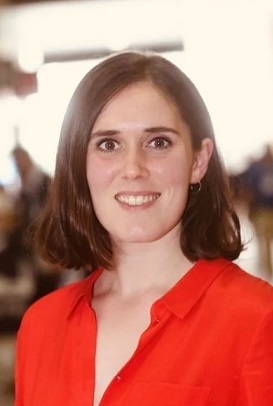
- Rebecca Williams
Global Head of Offshore Wind, Global Wind Energy Council (GWEC) - Rebecca Williams is a renewable energy, climate change and energy transition expert, and thought leader. Rebecca works for the Global Wind Energy Council, an international organisation representing the global wind industry to the world's leading political and economic institutions UN & UNFCCC, WEF, IMF, World Bank and more. Her role is to promote and facilitate the rapid acceleration of offshore wind globally, working with and advising governments and other key stakeholders in Asia-Pacific, MENA, Europe and Central Asia and the Americas. She works to create the right market, policy and regulatory frameworks for offshore wind to thrive, and leads all GWEC's offshore wind facing work, including the Global Offshore Wind Alliance. Prior to her role at GWEC, she worked for RenewableUK, and was responsible for achieving landmark policy and regulatory changes in the UK market, as well as contributing to the establishment of the UK's highly successful offshore wind sector. She has also held roles in major international NGOs, and the UK parliament.
- Rebecca Williams
-
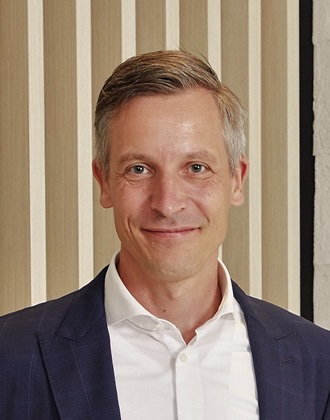
- Jens Bøgsted Orfelt
Regional President, APAC - Offshore Wind Development, RWE Renewables Japan - Jens Orfelt is an EVP and the regional president for offshore development with RWE Renewables in the Asia Pacific region and a member of the company’s global leadership team. He carries with him 15+ years of industry relevant experience, herein the past 6 years in the Asia Pacific region. Throughout his career he has worked within all cycles of the offshore wind industry ranging from early to late stage development all from identifying new opportunities to taking projects to FID / FC as well in construction and operations and maintenance. Currently stationed in Tokyo. Jens oversees the offshore wind development activities of RWE across the Asia Pacific.
- Jens Bøgsted Orfelt
-
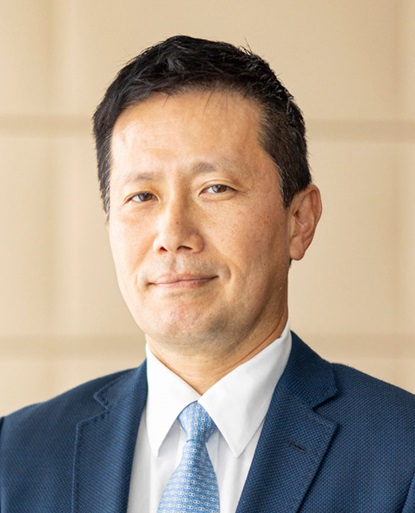
- Shunichi Tanaka
Member of the Board, President and Chief Executive Officer / Chief Operation Officer, Mitsubishi Corporation Offshore Wind - Shunichi Tanaka joined Mitsubishi Corporation (MC) in 1991 and has been involved in the power business for a long time. He was stationed in Mexico from 1999 and in Indonesia from 2008. In 2012, he became Team Leader of Japan Renewable Energy Team, Asia & Oceania Business Department. In 2014, he was appointed CEO of Diamond Generating Asia which serves as MC's power generation hub in Southeast Asia, Oceania and the Middle East (stationed in Hong Kong). In April 2002, he became Chief General Manager of Offshore Window Division at Mitsubishi Corporation Energy Solutions. In July 2022, he was appointed as Member of the Board, President and Chief Executive Officer of Mitsubishi Corporation Offshore Wind.
- Shunichi Tanaka
-
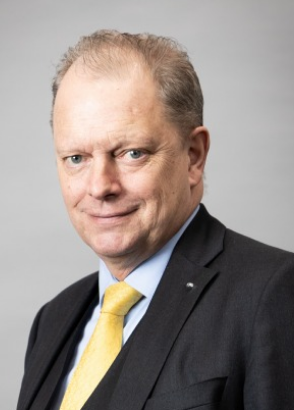
- Tomas Kåberger
Chair of Executive Board, Renewable Energy Institute - Tomas Kåberger has been the Chair of Executive Board of Renewable Energy Institute since its foundation in 2011. Academically, he got an MSc in Engineering Physics, a PhD in Physical Resource Theory, and Docent in Environmental Science at Chalmers. He has been professor in International Sustainable Energy Systems at the International Institute for Industrial Environmental Economics at Lund University, and he is currently affiliate Professor of Industrial Energy Policy at Chalmers University of Technology.
Industrially, he has had leading roles in companies providing fuels and technology in the bio-energy industry, another company developing sustainable energy solutions for the automotive industry, and a company operating wind power plants. Currently he serves on the board of Persson Invest, a company building wind and solar plants and a retailer of cars, trucks and busses; increasingly electric. He is also the Chairman of the Swedish Delegation for a Circular Economy.
He has served as Director General of the National Swedish Energy Agency, Board of Director of the power company Vattenfall, and as member of the Swedish Climate Policy Council.
Other key positions he has held include board of the Swedish and European environmental citizens organizations, government committees and commissions on energy and environmental policy in Sweden, as well as member task forces under China International Council for Cooperation on Environment and Development.
He is a member of the Royal Swedish Academy of Engineering Sciences and the Swedish Society of Energy Economists.
- Tomas Kåberger
-
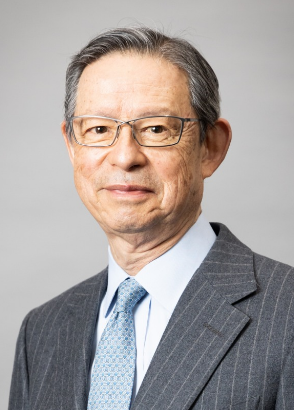
- Takejiro Sueyoshi
Vice-Chair of Executive Board, Renewable Energy Institute - After graduating from University of Tokyo, Takejiro Sueyoshi joined the Mitsubishi Bank (MUFG Bank, Ltd.) in 1967 and worked for the bank until 1998. During his years with Nikko Asset Management as Deputy President, he was appointed as a member of the UNEP FI Steering Committee. In addition to the involvement in the UNEP FI activities in the Asia Pacific Region, he is giving many educational speeches about environmental problems and CSR/SRI in various government councils, seminars, universities and TV programs. Former member of the Council for Japan’s Prime Minister on Climate Change Policy, a Trustee member of Carbon Disclosure Project and Chairperson of WWF Japan since September 2018.
His publications include “Ondanka Kogi (A lecture on Global Warming)” (Toyo Keizai), “Yugai Rensa (Chain of Harmfulness)” (Gentousha), “Green New Deal” (Editor,Kankyou Shinbun), “Saishin CSR Jijyo( The Newest Book on CSR)”(Hokuseido).
- Takejiro Sueyoshi
-
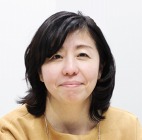
- Mika Ohbayashi
Director, Renewable Energy Institute - Mika Ohbayashi is Director at Renewable Energy Institute since its foundation in August 2011. Before joining the Institute, from 2010 to 2011, she worked in Abu Dhabi for the International Renewable Energy Agency (IRENA) as Policy and Project Regional Manager for Asia Oceania. Prior to that, she worked at the British Embassy to Japan as Climate Change Project Advisor from 2008 to 2009, and served as Director at the Institute for Sustainable Energy Policies from 2000 to 2008. She started her career in the energy field by joining the Citizens’ Nuclear Information Center in 1992. In 2017, she was awarded the ISES Global Leadership Award in Advancing Solar Energy Policy - in honour of Hermann Scheer by the International Solar Energy Society.
- Mika Ohbayashi
-
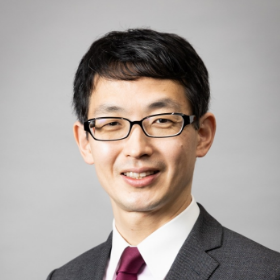
- Seiichiro Kimura
Senior Researcher, Renewable Energy Institute - Seiichiro Kimura joined Renewable Energy Institute in 2018. Specializes in cost-benefit analysis, techno-economic analysis with market penetrating simulation in the energy system. He started his career at Mitsubishi Heavy Industries in 2004, and was engaged in development of hydrogen energy until 2010. After working for International Institute for Carbon-Neutral Energy Research of Kyushu University, he became an associate at the Matsushita Institute of Government and Management between 2014 and 2018, where he was engaged in research on interconnecting electric power systems with the aim of increasing energy self-sufficiency through its own resources and eventually becoming a nation capable of suppling energy to other countries (energy-exporting nation). He received B.Sc. from Tokyo University of Science, M.Sc. from Tokyo Institute of Technology, and Ph.D. from Kyushu University.
At Renewable Energy Institute, his research focuses on interconnectors and market design for electricity system reform. He has also been responsible for formulating visualized charts and maps for the Power Supply/Demand and Power Flow of Interregional Interconnections data on the Institute’s website.
- Seiichiro Kimura
Speakers Profile REvision2024World Moves Towards Tripling Renewables
14 March 2024






